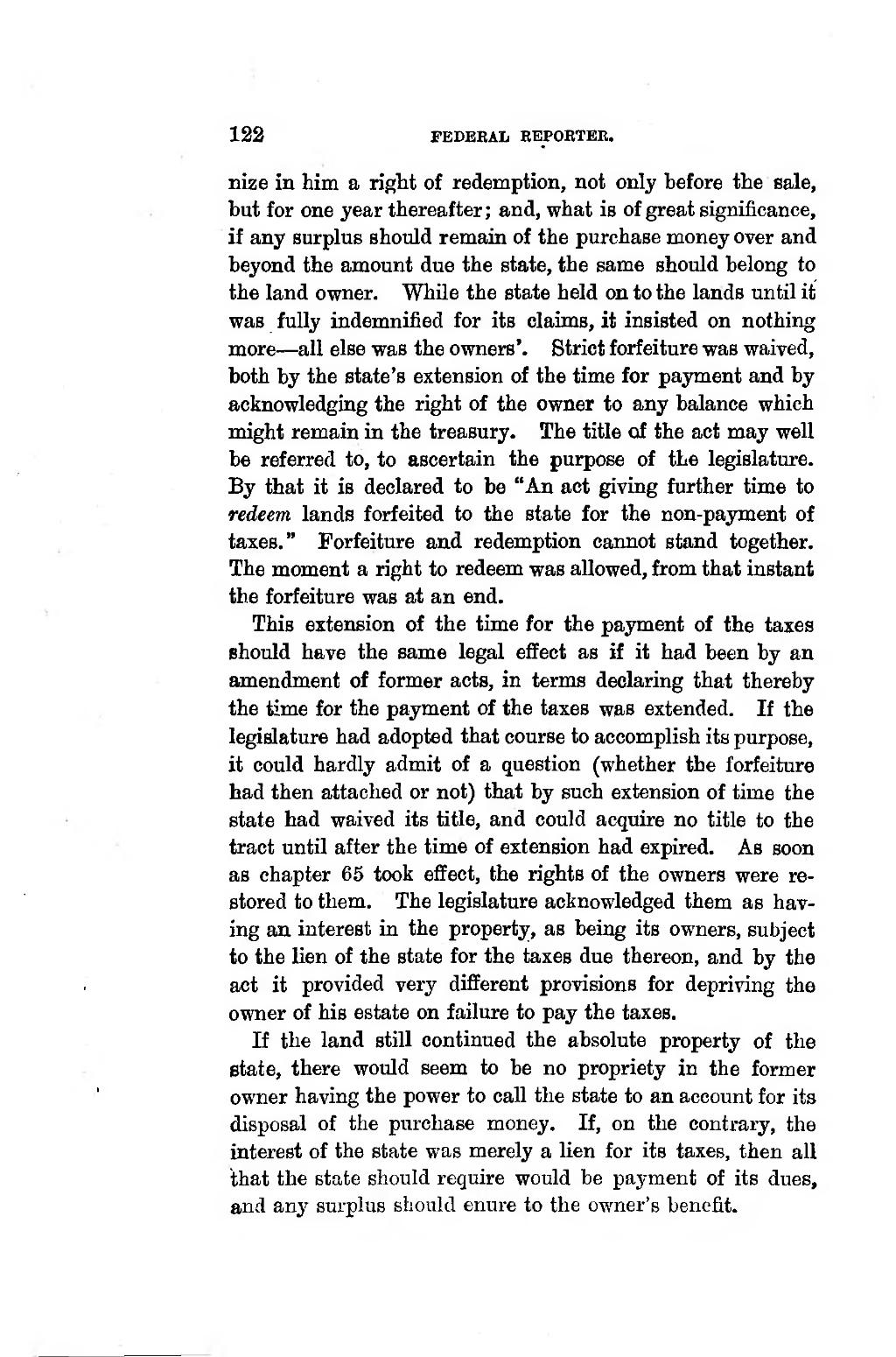122 FEDBEAL EEPORTEK, �nize in him a rigTit of redemption, not only before the sale, but for one year thereafter; and, what is of great significance, if any surplus should remain of the purchase money over and beyond the amount due the state, the same should belong to the land owner. While the state held on to the lands until it was fully indemnified for its claims, it insisted on nothing more — ail else was the owners'. Strict forfeiture was waived, both by the state's extension of the time for payment and by acknowledging the right of the owner to any balance whieh might remain in the treasury. The title of the act may -well be referred to, to ascertain the purpose of tLe legislature. By that it is declared to be "An act giving further time to redeem lands forfeited to the state for the non-payment of taxes." Forfaiture and redemption cannot stand together. The moment a right to redeem was allowed, from that instant the forfeiture was at an end. �This extension of the time for the payment of the taxes should have the same legal effect as if it had been by an amendment of former acts, in terms declaring that thereby the time for the payment of the taxes was estended. If the legislature had adopted that course to accomplish its purpose, it eould hardly admit of a question (whether the forfeiture had then attaohed or not) that by such extension of time the state had waived its title, and could aequire no title to the tract until after the time of extension had expired. As soon as chapter 65 took effect, the rights of the owners were re- stored to them. The legislature acknowledged them as hav- ing an interest in the property, as being its owners, subjeet to the lien of the state for the taxes due thereon, and by the act it provided very different provisions for depriving the owner of hia estate on failure to pay the taxes. �If the land still continued the absolute property of the state, there would seem to be no propriety in the former owner having the power to call the state to an account for its disposai of the purchase money. If, on the contrary, the interest of the state was merely a lien for its taxes, then ail that the state should require would be payment of its dues, and any surplus should enure to the owner's beneût. ����
